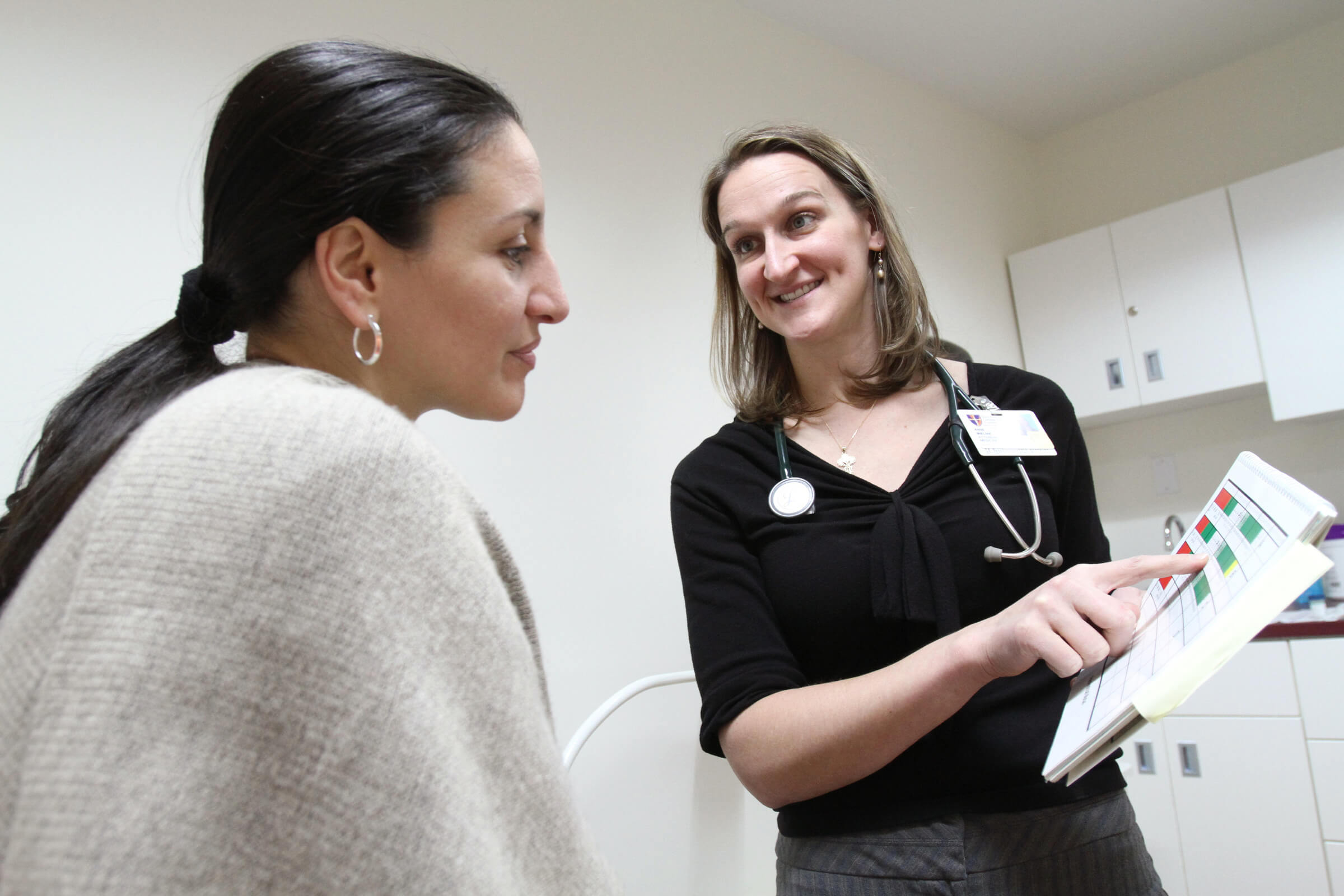
Natural Family Planning: Doorway to faith
By Carrie Handy
People find their way to faith through many different doors.
It was my Catholic upbringing that led me back to that door in my late twenties, but it was obedience to a teaching I didn’t understand that led me through.
The teaching was the controversial one on contraception.
Before I had children, I wondered how my mother ever managed with eight. She pointed out that older children become playmates and babysitters for younger ones, toys and clothes get passed down, life takes on a rhythm. Before you know it, 30 years have raced by, and you’re looking back, grandchild on your lap, wondering where the years went.
Nevertheless, theory and practice are different. The fear of the unknown can wreak havoc with our imaginations. In the late 1980’s, as now, the mindset of controlling the size of one’s family was firmly entrenched in the culture, and Catholics and non-Catholics shared similar practices around contraception and sterilization.
It was in this climate that I began my return to the active practice of the faith, making a conscious decision to accept all the teachings of the Church, not just those I found appealing. Underlying the decision was a recognition that greater minds and far holier souls than mine had reasoned through these doctrines; “erring” on the side of their wisdom seemed prudent. The teaching on contraception loomed large. As I sought to understand the “why” behind it, there was a more immediate concern about living in obedience to it. Luckily, we had heard about Natural Family Planning, and we agreed to try it. NFP is a scientifically proven means of recognizing the signs of fertility and using this knowledge to avoid or achieve pregnancy.
It requires open communication to evaluate personal needs and joint goals. NFP helped us to learn a whole new way to look at the gift of fertility and to gradually let go of the secular culture’s notion of control.
Looking back, we clearly see God’s hand in the ordering of our family size and recognize the abundant blessings bestowed as a result of our decision to obey first, understand later.
I also believe NFP helped save my life. After the birth of our third child I became pregnant with what turned out to be an ectopic pregnancy. Because of NFP, I knew I was pregnant very early. When I began experiencing painful cramping, I called the doctor who did some tests that gave ambiguous results; he wasn’t even convinced I was pregnant. Because I had been charting my fertility symptoms, however, I was able to persuade him to do additional tests.
After a few days of waiting, he recommended an exploratory laparoscopy. It happened just in the nick of time — my fallopian tube was rupturing during the procedure. Had they waited even another day the outcome might have been much different. I was advised to avoid another pregnancy for at least six months following this event, at the risk of another life-threatening tubal pregnancy. NFP was a welcome tool at that time — used strictly, it is nearly 100 percent reliable in preventing pregnancy. It was a sacrifice to be sure, but we agreed my life was worth it.
Miraculously, we later went on to have two more children, despite my decreased fertility.
NFP is not “Catholic birth control.” Although it is as effective in preventing pregnancy as contraception, NFP encourages couples to view their fertility in positive terms, with the “default” mode for marriage to be open to children.
— Handy is former respect life coordinator for the Diocese of Burlington.
— Originally published in the Spring 2018 issue of Vermont Catholic magazine.

